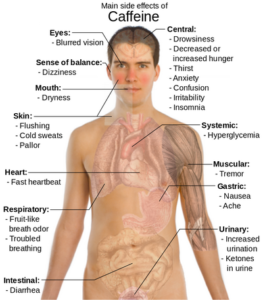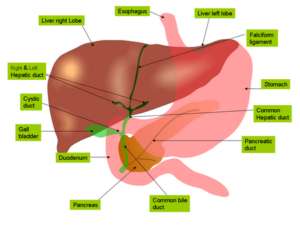
Tourette syndrome is referenced as a neurological disorder and is characterized by repetitive involuntary movements. These recurring movements are known as tics, which can cause both sudden vocal or physical actions. This illness derives its name from French Neurologist Dr. Georges Gilles de la Tourette, who was the first to identify the condition in an elderly aristocrat. Even today, Tourette syndrome is wrongly suggested to be a behavioral deformity or a sign of nervousness. The syndrome largely affects the nervous growth of a person and often starts to develop between the ages 2 to 21 years and continues throughout life.
It is reported that around 200,000 Americans are suffering from the most chronic form of the Tourette syndrome, while there are hundreds of other cases of moderate and mild cases of vocal and motor tics. Similarly, some people who experienced worst symptoms during early teenage years claimed to have witnessed an improvement in their condition later at an older age.
Tourette Symptoms
The Tourette syndrome can be discovered during early childhood by observing significant and noticeable behaviors in the child. Tics are generally like hiccups. They are unplanned and are out of an individual’s control. But hiccups can be stopped by many of the tested and tried tricks like drinking water. However, Tourette tics can’t be controlled under any circumstance. They are experienced as an increasing tension in ones’ body known as a premonitory urge. That makes it irresistible for the person to perform a particular action. Once the tic is released, the tension decreases which relaxes one’s body and brain cells.
Tourette tics can be divided into two types namely, vocal and physical and they usually occur in a combination.
-
Motor Tics
Motors tics are described as sudden and repetitive movements. These actions involve performing a certain action in order to satisfy rising muscle tension. Motor tics are also the first type of tics to be discovered and a person must exhibit two or three such involuntary actions every day for a year to be diagnosed as a Tourette patient. Motor tics can be divided into two types that are simple tics and complex tics.
Simple tics include actions such as facial contortion, shoulder shrugging, neck stretching and head jerking. These actions can occur independently or in a combination with each other. The more serious tics appear more prominently such as twisting, bending, touching and smelling objects. Although these twitches are physically harmless to the person, there are certainly more severe tics such as jaw clenching and biting. These actions occur as an outburst of a suppressed frustration and are self-injurious.
-
Vocal Tics
It is generally observed that vocal tics develop after the person has experienced motor tics. Vocal or phone tics causes people to produce sounds they don’t intend to. These vocal tics can be further classified into simple and complex levels based on their frequency and severity. Simple vocal tics largely include hooting, constantly clearing your throat, coughing, shouting and tongue clicking. While more complex tics can be traced during speech. Around 10-15% of all complex vocal tics are termed as Coprolalia, which causes a person to involuntarily speak obscene or improper words or phrases. Other such symptoms can be repeating someone’s words or anything just heard.
Causes and Diagnosis
Tourette syndrome is described as a genetic disorder but it is not contagious. This means that families with Tourette history are most likely to pass on the condition to future generations. Being a majorly neurological condition with not many developments made in the field, the exact cause of the syndrome is yet to be discovered.
According to a few research studies, Tourette syndrome is a result of imbalances in the brain chemicals namely norepinephrine dopamine, serotonin. These chemicals, collectively known as neurotransmitters, aid the nerves in communicating inside the brain by carrying signals from one cell to another. Another part of the brain called the basal ganglia, which is responsible for various body movements, also plays a role in generating tics.
With there being no specific test for Tourette syndrome, a doctor or neurologist would usually assess the family history along with medical records. A doctor would also observe the individual’s symptoms and in some cases conduct medical tests such as brain scans and blood tests.
Although Tourette syndrome can be a lifelong disorder limiting one’s control over movement, the syndrome in itself is not life-threatening. People suffering from the condition are able to live a normal life, working, studying and enjoying their time like everyone else.











 Keeping the brain’s neuron’s synapses healthy is a major factor in maintaining effective cognitive performance, as well as maintaining the body’s nervous system. There are conditions
Keeping the brain’s neuron’s synapses healthy is a major factor in maintaining effective cognitive performance, as well as maintaining the body’s nervous system. There are conditions 

 From the above discussion, one can deduce that the good and bad of drinking coffee actually boils down to the degree of its consumption, as well as your physical condition to sustain it, but in general, consuming coffee in moderation may be the way forward.
From the above discussion, one can deduce that the good and bad of drinking coffee actually boils down to the degree of its consumption, as well as your physical condition to sustain it, but in general, consuming coffee in moderation may be the way forward. 


